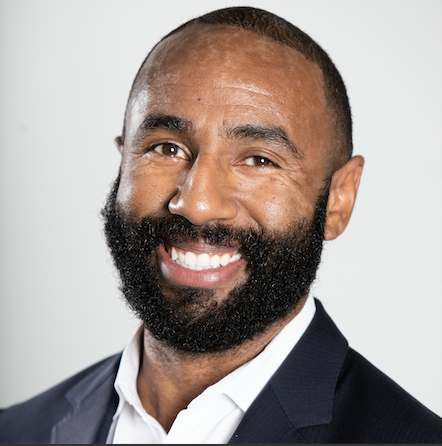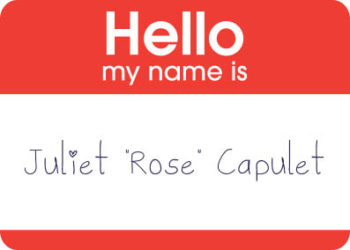
Continuing a fledgling series looking at start-ups in the scholarly sector, not only in terms of what they do and how it could be useful, but also in terms of how they have got started, and what tips they might share with other entrepreneurs. This time, an interview with Tony Zanders, founder and CEO of Skilltype. I was introduced to Skilltype by another Scholarly Kitchen writer, Roger Schonfeld, and it caught my attention because it aims to address a problem that I’ve heard a lot about during my years on the board of UKSG – that of the mismatch between library schools’ curricula, and professional development options for librarians, and the current skills needed by those working in academic libraries.
Part 1: the tool — the right training for the right people at the right time
Skilltype is a marketplace for training content. It brings together materials from different providers, and designs “reskilling workflows” for information professionals and their teams. It came into existence because “the demand for new skills in the information profession exceeds the supply”, says Tony – the tools and infrastructure for professional development in libraries haven’t kept up with the skills people need to do their job. It is timely, because “libraries are struggling to find the talent they need, and COVID-19 has made it even harder for people to access training”. Skilltype aims to fill the gap by helping professional associations, conference organizers and other training providers to promote the “right training to the right organizations and people at the right time”.
“The demand for new skills in the information profession exceeds the supply.”
It’s also a timely initiative in the context of cultural change in the sector, and a movement among libraries to align budgets with values. “I began to think differently about the academic library vendor marketplace after reading a 2017 MIT Libraries Task Force report,” explains Tony. “The report encouraged its collections directorate to ‘serve a larger purpose than as a purchasing agent’, and made the point that ‘reduction in price can come at the cost of diversity, inclusion, and social justice’”. One strategy suggested by the report was to ‘support diversity in the marketplace by identifying alternative vendors (e.g., women- or minority-owned businesses)’. “When I began to research how feasible this would be, I concluded it would be difficult to implement this strategy given the current demographics of library vendor market. As a Black entrepreneur, building a company enabled me to become a part of the solution.”

Having been founded in the US, the company primarily supports an English-speaking user base, but is seeing growth through international partnerships with organizations such as LYRASIS, CAVAL, IFLA, and the Library Association of Singapore. Product options include a software-as-a-service solution that helps organizations provide employees with on-demand professional development that “aligns with the key skills and strategic directions identified by the organization’s leadership”. Professional associations such as the Black Caucus of the American Library Association (BCALA) or North American Serials Interest Group (NASIG) are also using Skilltype to help improve their programming and services by understanding the existing expertise within their community. The platform will open up to individuals later this year, and is currently offering a free “early access” option. Future plans include “connecting organizations who want to share expertise across a network” and “enabling current and future information professionals to learn any skill from anywhere regardless of title or rank.”
“If we are successful, upskilling and reskilling would become primary modes of talent acquisition across the GLAM sector, making recruitment a last resort.”
Part 2: The how-to – tips for other entrepreneurs
FUNDING: Use your network to find development partners who can afford to support R&D
“In 2018, I left EBSCO to join a local start-up community in New Orleans, to begin coaching local entrepreneurs and exploring my own ideas. I started working with a community of academic libraries who were asking the same questions I was around the future of work in libraries. These development partners were instrumental in helping turn ideas into prototypes that we could eventually wrap policies and pricing models around. Since the beginning, our library partners provided financial support to get the project off the ground, with over $180,000 put towards research and development. I initially structured this as monthly payments with no obligation to continue, though I was quickly informed that the predictability of an annual subscription was more desirable than having to process new payments every few weeks. Our current business model charges organizations based on the number of employees at an organization. We don’t charge individuals to use Skilltype for personal learning and development.”
UNEXPECTED CHALLENGES: Be ready to pivot to a new need
“Like everyone else, I was caught off guard by COVID-19 and its impact on professional development budgets. 2020 was supposed to be our launch year, but when we brought the product to market that July, library budgets were in total disarray. This required some significant redirection to navigate that storm and reach business milestones, which I’m happy to report we did. One positive aspect of COVID was that it fast tracked a dialog among libraries on how to think differently about acquiring expertise. We no longer have to convince organizations of the importance of developing a short-term and long-term talent strategy.”
TOP TAKEAWAYS: “Marry the problem, not the solution.”
- “Listen to your customers. Iterate with them early and often. Libraries are hubs of innovation and comfortable doing more with less — something start-ups have to get used to very early on.”
- “Develop a deep understanding of the problem you’re aiming to solve and marry the problem, not the solution. This gives you the flexibility to evolve your solution (e.g., product, pricing, and policy) to meet the changing needs of your customers.”
- “Charge for your services from day one. This establishes a clear business relationship with accountability and expectations. It also ensures that you’re offering a service that can stand on its own two feet.”



